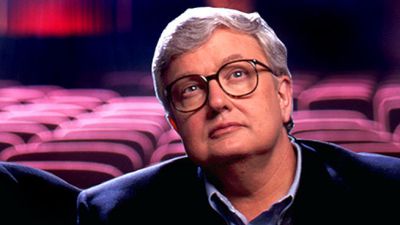
 Film Critic Roger Ebert Dies Aged 70
Film Critic Roger Ebert Dies Aged 70
Friday 5th April 2013 | Adam
"No good movie is too long, no bad movie is short enough."
Very few film critics commandeer respect or admiration; we are more often a venal, cruel and mocking creature than we are an informative or charming one (he says with complete awareness). We like people to think what we tell them to think.
This was not the case for Roger Ebert, quite possibly the world’s only beloved critic, who died yesterday at the age of 70 from a long battle with cancer. He was not only a giant in the circles of film criticism, but an icon to millions of viewers who trusted his consistently unpretentious and hysterically funny analyses of the movies.
His career began writing for the Chicago-Sun Times in 1967, a vocation he would fill until his death. Throughout his life he maintained close friendships with filmmakers, even writing the script for the 1970 Russ Meyer sexploitation flick Beyond the Valley of the Dolls.
Ebert had a view of film that was both hilarious and life-affirming. He never went into a film expecting it to be terrible, a philosophy that often caused lesser critics to attack him for being too generous. Films were measured by their merit within the genre, not against those reputed to be high art. He even managed to find the pros in Alice in Wonderland (X), a bizarre 1976 musical porno version of the classic story, describing it as having “wit and style” and praising the lead actress as projecting “such a freshness and naiveté that she charms us even in scenes where some rather alarming things are going on.” The braveness to admit to liking a saucy musical is a virtue that the majority of critics would rather label a vice.
He also popularised the thumbs up/thumbs down review method on At the Movies with co-reviewer and rival Gene Siskel, the two taking on the roles of Roman emperors in the coliseum of cinema. From 1982 until Siskel’s death in 1999, the two livelily and viciously debated the other’s taste, though both insisted the heatedness was just an act for the camera.
Whilst Ebert could be kind, his putdowns have become the stuff of legend. Both succinct and witty, he often managed to destroy a film with just a few choice words. Though the analysis is short, the Rob Reiner film North (1994) is now only remembered for this beautifully scathing review of it:
“I hated this movie. Hated, hated, hated, hated, hated this movie. Hated it. Hated every simpering stupid, vacant, audience-insulting moment of it. Hated the sensibility that thought anyone would like it. Hated the implied insult to the audience by its belief that anyone would be entertained by it.”
Insulting the audience and morally failing them were the two biggest offences any film could commit, according to Ebert. He loved cinema in a way that made him hostile to anything that corrupted it. The highest award any film could get in his reviews was four stars. Ebert gave The Human Centipede none:
“Is the movie good? Is it bad? Does it matter? It is what it is and it occupies a world where stars don’t shine.”
Due to thyroid cancer, Ebert lost part of his jaw and the ability to speak in 2006, but continued to contribute extensively to the discussion of film and make public appearances, writing “we spend too much time hiding illness.”
Critics come and go, taking our snide comments and gushing praises with us. Roger Ebert’s presence shall endure longer than most because he wasn’t just someone paid to watch films and tear them to shreds like an obnoxious infant; Ebert was an educator who lived and breathed cinema, and like all the best educators, he was damned funny.
- Adam Hofmeister
